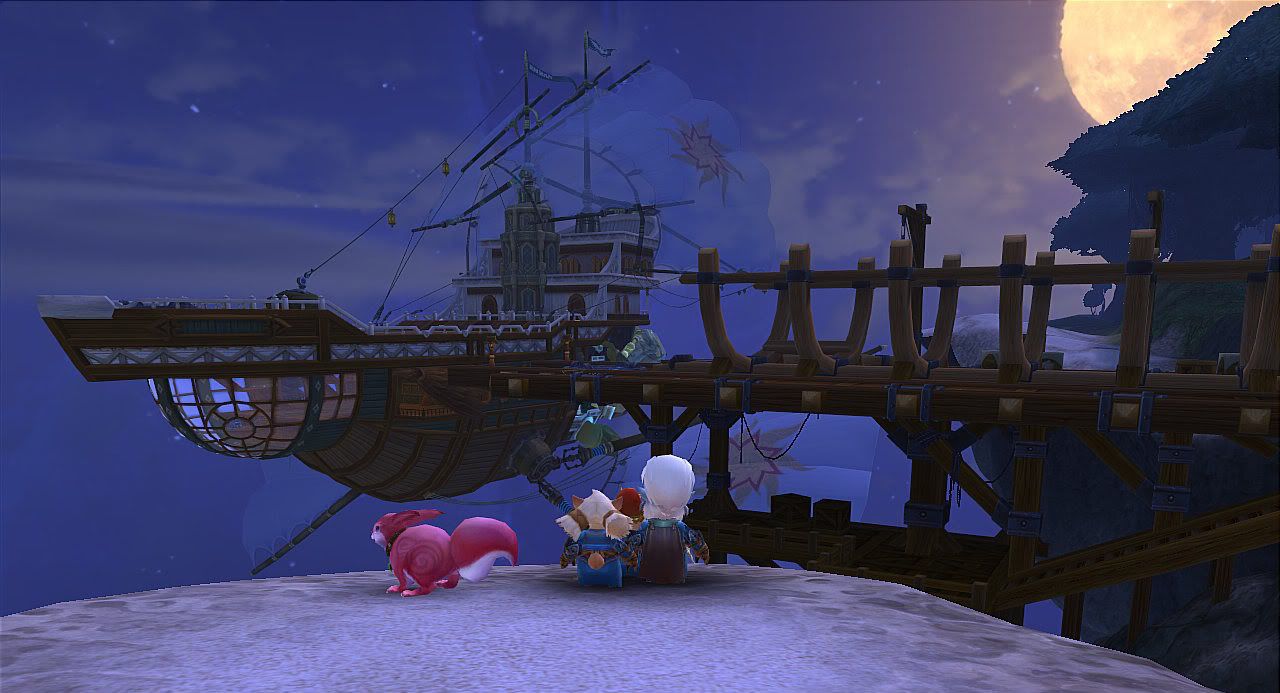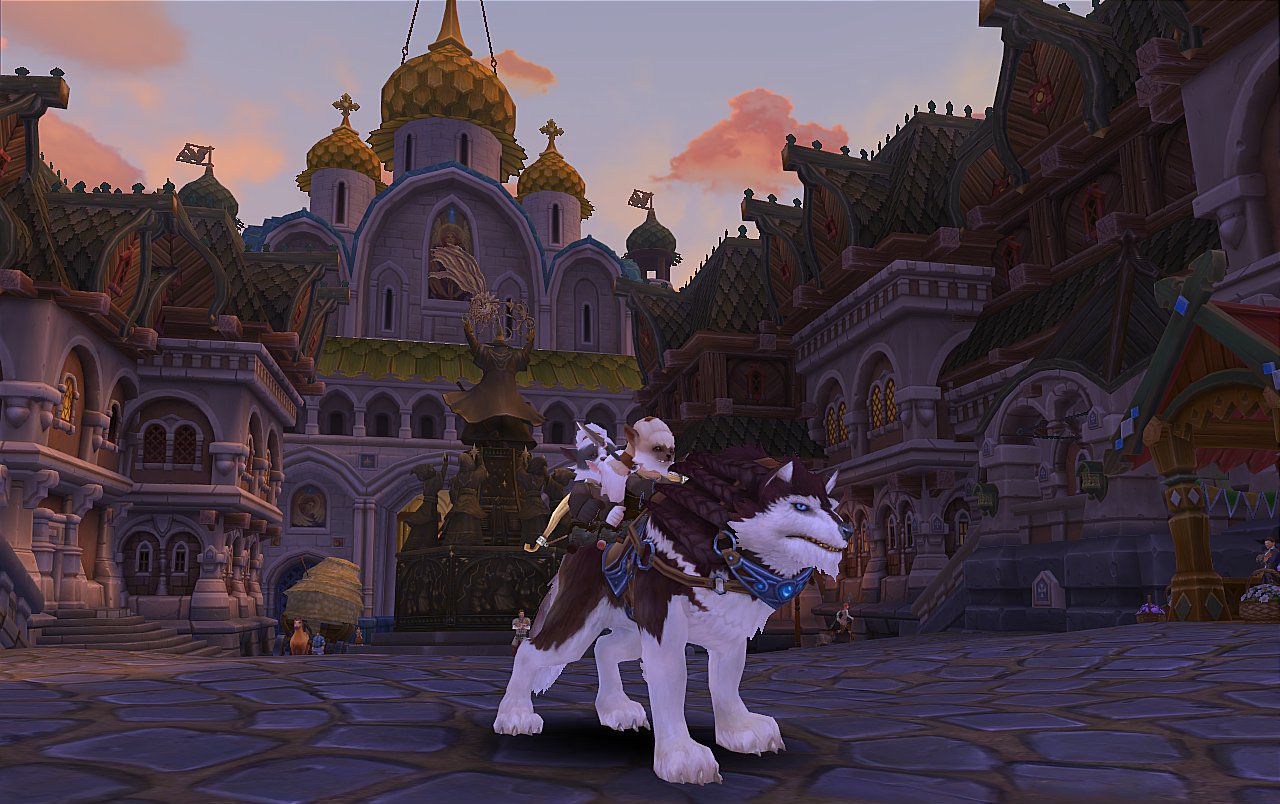...Or more like 'Stress Test', going by the throngs of people swarming all over during the 6-hour window the beta was open to the public. Even so, the game was stable and ran fine for me, barring one random 'teleported into space' bug I found when exiting one of the class trainers' rooms.
I only had the time to play to the point where I received my first ship (level 4), but already I've been charmed by KingsIsle's latest take on their worlds of the Spiral. The naming system alone was pretty entertaining; just hitting 'Random' and seeing how many different piratey names you could get out of it was a lot of fun just by itself. Also, you get to design your own pirate flag along with your appearance! This is the sort of stuff I'm a total sucker for. =P
KingsIsle has said that
Pirate101 is targeted to a slightly older audience than
Wizard101, and I do think that there is potential for more complex strategy in combat in P101, going by the little I saw at a early level. Once you engage an enemy, you are presented with a grid of the combat area, and you choose to either move your characters or use abilities across a certain range (basically like simplified RTS units). Once you choose your actions within the allotted time limit, combat will then play out on it's own. Besides straight one-on-one fighting there are also variables such as objects you need to defend for a certain number of turns or other grid objectives that may need to be completed before you can declare victory.
Unlike
Wizard101's
card battle system, attacks in P101 are tied to your characters and their 'crew' (NPC party members). Depending on your
pirate's class you have access to a set of varying skills, with the option of spending points you earn via leveling to acquire the skills of other classes. This allows you to hybridize your character in multiple ways. The classes you can choose from are
Buccaneer as a melee tank,
Privateer as group support/healer,
Swashbuckler as a stealthy melee dps,
Witchdoctor as a debuffer/summoner, and
Musketeer as a ranged dps/trapper.
As you progress you also collect a crew of NPCs that can appear on the board with you, and who have their own skills that you can train. Some crew members are unique to various classes, and complement classes in different ways. Like in
Wizard101, soloing should be viable throughout the whole game, even though grouping is very easy (simply run up to a fighting player to join in; loot and exp is automatically shared fairly).
Personally, I love turn-based combat (which is one of the reasons I liked
Wizard101) and it seems
Pirate101 will offer some fun strategy RPG fare for both kids and older players who can appreciate whimsy and lighthearted humor in their games. The animation, art, and storytelling in P101 is very much improved over
Wizard101 while still being familiar to folks who've played the earlier game, and is a nice mix of old and new for veteran players.
The Crowns Shop in P101 appears to be very similar to the one in
Wizard101, with mounts, armor, housing, pets, furniture, ships and ship gear (there is also
ship combat in the game, though I barely got to try it out), and various buff potions available. In
Wizard101, you could get everything you needed without spending real money and I played for nearly 4 years and only ever bought vanity stuff like mounts and housing stuff and never felt I was disadvantaged in any way -- and hopefully that will continue to be the case in
Pirate101. One thing I always felt KingsIsle got right in their cash shop was that buying stuff from it always felt
fun, rather than being something you were being forced to do in order to properly enjoy the game. As one of the first Western cash shop MMOs, it still amazes me how well they got things right back in 2008 when there are
still MMO companies today struggling to figure out how to monetize their games without resorting to being predatory.
Just like
Wizard101, P101 utilizes either a 'monthly-fee plan' or 'buy as you go' system in regards to playing different zones past the newbie area -- for 10$ a month you have free access to everywhere at any time, or else you can buy individual zones for a set (lower) price. For slower/casual players, buying zones as you need them may be a better deal in terms of monthly cost; so technically P101 is more 'Freemium' than 'Free-to-Play'.
The few hours I had with the game this afternoon went by pretty fast -- so I'm looking forward to Oct. 15th and the official release so I can put some more time into the game. But from what I saw today,
Pirate101 looks like it'll be a solid, entertaining game for pirate-fans of all ages.



















